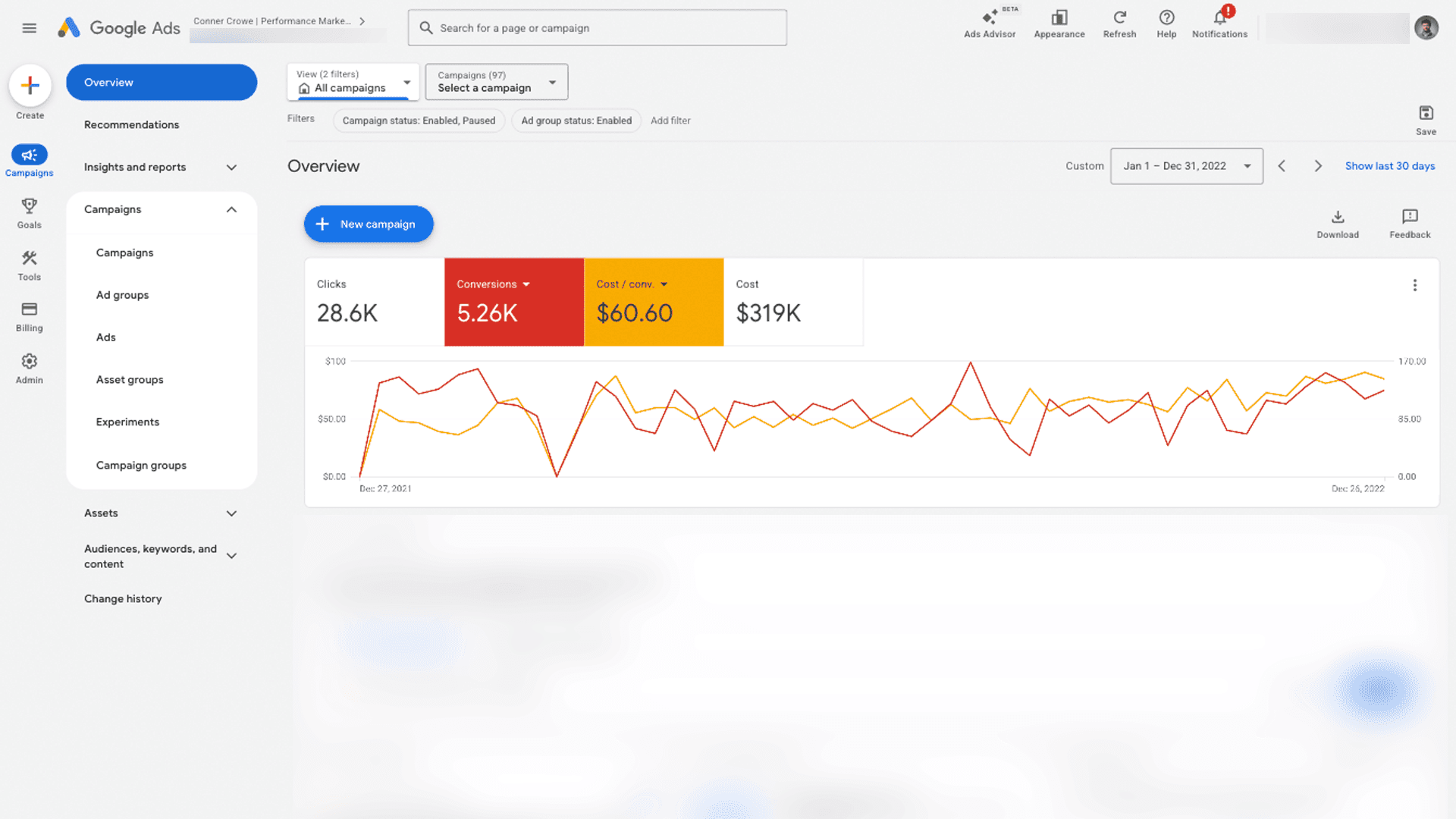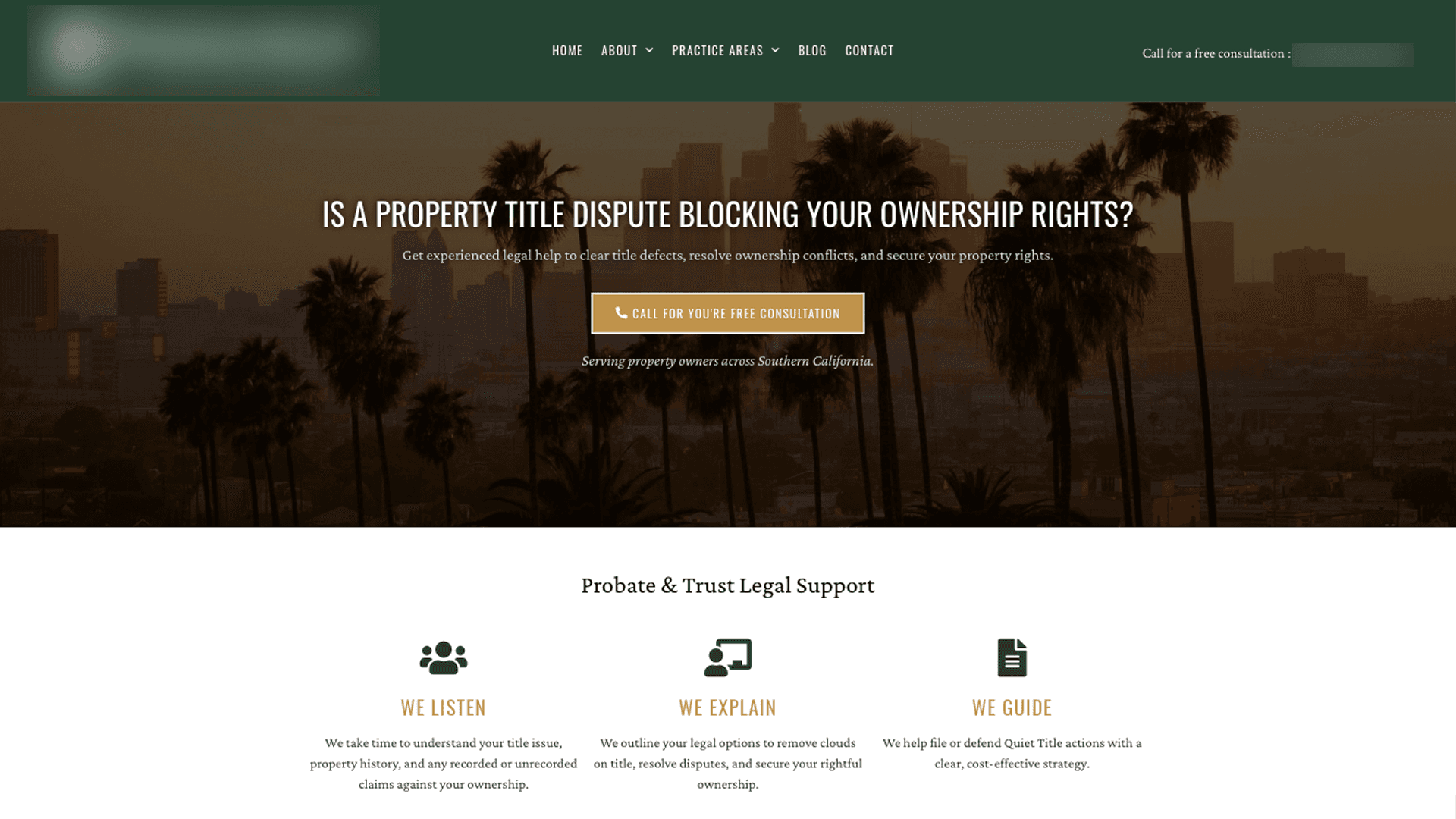Growing Vanity Resource With a Clean Product Feed and Smart Google Shopping
Built a complete Google Ads system from scratch, fixed tracking, and increased revenue by more than double in the first two months.
Services
Product Feed Setup, Shopping Ads, Search Campaigns, Micro Conversion Tracking, Strategy and Optimization
Services
Product Feed Setup, Shopping Ads, Search Campaigns, Micro Conversion Tracking, Strategy and Optimization
Services
Product Feed Setup, Shopping Ads, Search Campaigns, Micro Conversion Tracking, Strategy and Optimization
Tools
Google Ads, Google Merchant Center, Google Tag Manager, WooCommerce, Custom Data Feed, GA4 for supporting insights
Tools
Google Ads, Google Merchant Center, Google Tag Manager, WooCommerce, Custom Data Feed, GA4 for supporting insights
Tools
Google Ads, Google Merchant Center, Google Tag Manager, WooCommerce, Custom Data Feed, GA4 for supporting insights
Value
Fix the foundation, clean up the data, and build campaigns that match real buying behavior to drive fast, measurable growth.
Value
Fix the foundation, clean up the data, and build campaigns that match real buying behavior to drive fast, measurable growth.
Value
Fix the foundation, clean up the data, and build campaigns that match real buying behavior to drive fast, measurable growth.
Timeline
90 days
Timeline
90 days
Timeline
90 days



Introduction
Vanity Resource came to me with no paid ads, no product feed, and tracking that didn’t show anything useful. They couldn’t see add to carts, begin checkouts, product views, or any real shopper activity. They were relying on basic SEO that wasn’t bringing in steady sales. Their checkout didn’t process payments online. Customers submitted a form and the business finished the order later, which made normal conversion tracking pointless.
These are higher priced products, so most shoppers share links with designers or spouses before buying. The final buyer is usually someone different. That breaks attribution and makes it look like nothing converts, even when sales are happening. They had no setup that matched how their customers actually buy.
Vanity Resource came to me with no paid ads, no product feed, and tracking that didn’t show anything useful. They couldn’t see add to carts, begin checkouts, product views, or any real shopper activity. They were relying on basic SEO that wasn’t bringing in steady sales. Their checkout didn’t process payments online. Customers submitted a form and the business finished the order later, which made normal conversion tracking pointless.
These are higher priced products, so most shoppers share links with designers or spouses before buying. The final buyer is usually someone different. That breaks attribution and makes it look like nothing converts, even when sales are happening. They had no setup that matched how their customers actually buy.
Vanity Resource came to me with no paid ads, no product feed, and tracking that didn’t show anything useful. They couldn’t see add to carts, begin checkouts, product views, or any real shopper activity. They were relying on basic SEO that wasn’t bringing in steady sales. Their checkout didn’t process payments online. Customers submitted a form and the business finished the order later, which made normal conversion tracking pointless.
These are higher priced products, so most shoppers share links with designers or spouses before buying. The final buyer is usually someone different. That breaks attribution and makes it look like nothing converts, even when sales are happening. They had no setup that matched how their customers actually buy.
Problem
Vanity Resource was stuck because of a few simple issues:
• No Merchant Center and no product feed
• No Google Ads account
• No real purchase tracking
• Final buyers completing orders on a different device or by a different person
• No micro conversions to help Google understand intent
• No visibility into how people were interacting with the site
• SEO alone couldn’t move the needle
Google had nothing to optimize for and the business had no real visibility into what was happening.
Vanity Resource was stuck because of a few simple issues:
• No Merchant Center and no product feed
• No Google Ads account
• No real purchase tracking
• Final buyers completing orders on a different device or by a different person
• No micro conversions to help Google understand intent
• No visibility into how people were interacting with the site
• SEO alone couldn’t move the needle
Google had nothing to optimize for and the business had no real visibility into what was happening.
Vanity Resource was stuck because of a few simple issues:
• No Merchant Center and no product feed
• No Google Ads account
• No real purchase tracking
• Final buyers completing orders on a different device or by a different person
• No micro conversions to help Google understand intent
• No visibility into how people were interacting with the site
• SEO alone couldn’t move the needle
Google had nothing to optimize for and the business had no real visibility into what was happening.






Solution
Here’s what I set up.
Built a Google Merchant Center account and created a direct WooCommerce product feed so every SKU synced correctly for free and paid Shopping placements.
Created a full Google Ads account with two main campaigns:
• Shopping for all products
• Search campaigns grouped by themes like single vanities, double vanities, rustic, floating, and modernAvoided Maximize Conversions since the checkout process breaks attribution. Ran Maximize Clicks to get real shoppers to the site without forcing Google into a bad bidding pattern.
Added a full Google Tag Manager setup.
This included tracking for:
• Add to Cart
• Begin Checkout
• Product views
• Multi-page product browsing
• All core engagement signalsThis finally gave us visibility across organic, direct, paid search, paid shopping, and organic shopping. We could clearly see what was creating interest and where to put budget.
This structure matched how people actually shop for these products and gave us the data we needed to scale.
Here’s what I set up.
Built a Google Merchant Center account and created a direct WooCommerce product feed so every SKU synced correctly for free and paid Shopping placements.
Created a full Google Ads account with two main campaigns:
• Shopping for all products
• Search campaigns grouped by themes like single vanities, double vanities, rustic, floating, and modernAvoided Maximize Conversions since the checkout process breaks attribution. Ran Maximize Clicks to get real shoppers to the site without forcing Google into a bad bidding pattern.
Added a full Google Tag Manager setup.
This included tracking for:
• Add to Cart
• Begin Checkout
• Product views
• Multi-page product browsing
• All core engagement signalsThis finally gave us visibility across organic, direct, paid search, paid shopping, and organic shopping. We could clearly see what was creating interest and where to put budget.
This structure matched how people actually shop for these products and gave us the data we needed to scale.
Here’s what I set up.
Built a Google Merchant Center account and created a direct WooCommerce product feed so every SKU synced correctly for free and paid Shopping placements.
Created a full Google Ads account with two main campaigns:
• Shopping for all products
• Search campaigns grouped by themes like single vanities, double vanities, rustic, floating, and modernAvoided Maximize Conversions since the checkout process breaks attribution. Ran Maximize Clicks to get real shoppers to the site without forcing Google into a bad bidding pattern.
Added a full Google Tag Manager setup.
This included tracking for:
• Add to Cart
• Begin Checkout
• Product views
• Multi-page product browsing
• All core engagement signalsThis finally gave us visibility across organic, direct, paid search, paid shopping, and organic shopping. We could clearly see what was creating interest and where to put budget.
This structure matched how people actually shop for these products and gave us the data we needed to scale.


Once the foundation was fixed, the business saw a sharp jump. Revenue climbed well over 100 percent compared to their usual monthly averages. The only real change was visibility and a system that matched their buying cycle.
Most ecommerce brands don’t struggle because of the product. They struggle because their tracking, feed, and campaigns don’t give buyers a real path to convert. When you clean that up and build the right foundation, the results follow fast.
Once the foundation was fixed, the business saw a sharp jump. Revenue climbed well over 100 percent compared to their usual monthly averages. The only real change was visibility and a system that matched their buying cycle.
Most ecommerce brands don’t struggle because of the product. They struggle because their tracking, feed, and campaigns don’t give buyers a real path to convert. When you clean that up and build the right foundation, the results follow fast.
Once the foundation was fixed, the business saw a sharp jump. Revenue climbed well over 100 percent compared to their usual monthly averages. The only real change was visibility and a system that matched their buying cycle.
Most ecommerce brands don’t struggle because of the product. They struggle because their tracking, feed, and campaigns don’t give buyers a real path to convert. When you clean that up and build the right foundation, the results follow fast.
Projects
Other Projects
Other Projects
Want to chat about your marketing? Book a call.
Let’s talk through your tracking, campaigns, and growth goals.
Want to chat about your marketing?
Book a call.
Let’s talk through your tracking, campaigns, and growth goals.
Want to chat about your marketing? Book a call.
Let’s talk through your tracking, campaigns, and growth goals.



